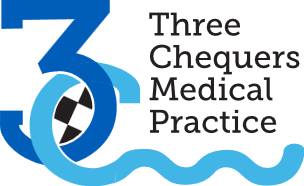Three Chequers Medical Practice Provisional Policy on Shared Care Prescribing with Private/non-NHS Providers
The practice has decided that we are unable to take on shared care agreements with private providers for ADHD medication for new patients until a formal position has been agreed locally. We are awaiting guidance and agreement between the Wessex Local Medical Committees and the BSW ICB Medicines Management team (Bath & NE Somerset, Swindon & Wiltshire Integrated Care Board – the commissioning body for local services). This decision has been made due to concerns about the safety of prescribing.
Please note that this is a provisional policy which may be subject to change over the coming months as a local agreement is considered.
We recognise that due to pressures on NHS services and extraordinarily long wait times, many patients are choosing to be seen in the private sector for assessment and treatment for ADHD. This has led to an understandable proliferation of requests for NHS prescriptions of ADHD medications.
In order for these medications to be prescribed by an NHS GP, it requires a ‘shared care agreement’ between the consultant and general practitioner. This is a mandatory stipulation placed on GPs for safety reasons by our local BSW area prescribing committee. This is a specific, formal, locally-agreed, document which outlines the responsibilities for patient, specialist (typically a consultant specifically trained in this area of medicine in the NHS) and GP. This is an entirely voluntary agreement that a GP may enter into if he/she wishes, but by doing so takes on full clinical and medico-legal responsibility for safe prescribing (and usually monitoring) of this medication. ADHD medications are not medications which are allowed to be initiated in primary care due to their specialist nature and side effects, but could be prescribed by GPs under a locally agreed NHS shared care agreement once the patient had been stabilised on these medications. This typically refers to a period of time without dose adjustments or clinical concern, usually 3 months.
There are currently significant concerns around the safety of prescribing these medications outside of an NHS shared care agreement, and the subject is being reviewed locally due to these concerns by GP practices across the area. Sharing care with the private sector can carry higher risks than doing so with a commissioned NHS service. Many areas across the country have advised their GP practices not to prescribe in such situations. Broadly, but not exhaustively, concerns revolve around:
- The ability to hand back care to a private provider, whom a patient is no longer paying to see
- The ability to communicate easily or make timely clinical queries to a private provider
- Responsibilities for regular follow up review and/or monitoring when a patient is paying for this service
- Shared care agreements (or lack of) which differ from that of the NHS, or expect different things from GPs which may fall outside the remit or competence of the GP
- The status and clinical governance of the private service, including that of the clinician recommending the diagnosis/prescriptions
- The nature of prescribing itself (recommendation of medication or dosing outside of licensing or typical use)
- Failure to adhere to NHS Shared Care standards, such as requests to prescribe medications when the patient’s condition and treatment is unstable
We hope to formalise a position over the coming months when more specific guidance is provided to the GP surgeries across the area about this topic. We understand the very real difficulties faced by patients due to the current waiting list of NHS ADHD services, but hope that this goes some way to explaining the practice’s current position and concerns.
Benzodiazepines are medications used as sedatives, to reduce anxiety and feelings of panic. They are increasingly being recognised as both a drug of misuse & associated with harm. As a practice, we often get requests for them to be prescribed to reduce situational anxiety e.g., flying, dental procedures & imaging studies such as MRI or CT scans.
A new practice policy has come into effect so that we will no longer be able to provide these medications for these reasons. This has come after discussion with doctors from the Civil Aviation Authority (CAA), the Local Medicines Committee (LMC) on dental procedures, and Salisbury Hospital’s radiology department.
Regarding flying: The CAA medical team advise against benzodiazepine use for several reasons:
- In the benzodiazepine-naïve patient effectiveness and side-effects are unpredictable
- Concomitant use of alcohol is common to also help control anxiety & this is dangerous
- May impair individual's ability to respond appropriately in the event of an emergency, putting both themselves and crew/other passengers at risk of harm
- Some patients may become confused &/or disruptive, particularly if they also take alcohol, leading to denied boarding or having to be restrained during flight
- On long-haul flights, over-sedation may increase the risk of venous thrombo-embolism because of prolonged immobility
Regarding dental prescriptions: Wessex LMC advises
- Dentists should not direct patients to GPs requesting they prescribe sedating medications, such as diazepam.
- If a dentist wishes to prescribe sedating medications for anxious patients that dentist should be responsible for issuing the prescription. The dental practitioner’s formulary…includes Diazepam Tablets and Oral Soution.
- If the dentist is treating an NHS patient they should use an PF14D form, or privately using a private script.
- Dentists may contact a GP for information or advice, if, for example the patient has a complex medical history.
Regarding imaging procedures: Upon review of the guidance issued by the Royal College of Radiology entitled ‘Sedation, analgesia and anaesthesia in the radiology department’ 2nd edition
- This guidance lists a number of concerning features about the use of these medications and the assessment and monitoring process that must be undertaken both before this procedure, and during the examination.
- Three Chequers GPs have been working with the radiology department to come up with a policy of safe prescribing during 2022 and 2023 and have been unable to reach a position in which a GP can safely prescribe these medications.
- Therefore, any patients requesting sedation for any radiological procedure must go to the consultant or hospital team who has requested the investigation, for them to provide the prescription. This measure has been undertaken to ensure the safety of our patients.
Kind regards,
The Partners at Three Chequers Medical Practice

We use cookies to help provide you with the best possible online experience.
By using this site, you agree that we may store and access cookies on your device. Cookie policy.
Cookie settings.
Functional Cookies
Functional Cookies are enabled by default at all times so that we can save your preferences for cookie settings and ensure site works and delivers best experience.
3rd Party Cookies
This website uses Google Analytics to collect anonymous information such as the number of visitors to the site, and the most popular pages.
Keeping this cookie enabled helps us to improve our website.

